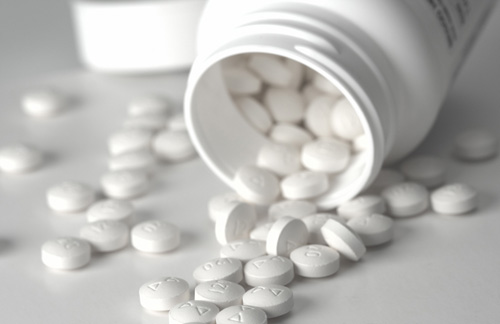What are the results of deficiency in CoQ10?
Firstly, What is CoQ10?
Coenzyme Q10 (or CoQ10) is a natural chemical compound that we make in our bodies and consume in our diets, primarily from oily fish, organ meats such as liver, and whole grains.
It resides in the energy-producing part of cells and is involved with producing a key molecule known as adenosine-5-triphosphate (or ATP).
ATP is a cell’s major energy source and it contributes to several important biological processes, such as the production of protein, and muscle contraction.
Why is CoQ10 important?
CoQ10 has the potential to vastly improve human health. It can help you combat fatigue, for example, as well as obesity, and a weak immune system (particularly for those with HIV, other viruses, and yeast infections).
It helps boost athletic performance (CoQ10 levels are low in people who exercise excessively), and it improves exercise tolerance in people with muscular dystrophy.
It also prevents toxin overload, and swollen gums (those with periodontal disease tend to have low levels of CoQ10 in their gums). Early studies show it may also increase sperm motility, leading to enhanced fertility. It’s all in a day’s work for CoQ10!
What’s the importance of COQ10 for heart disease?
The American Chemical Society’s most prestigious honour, the Priestley Medal, was awarded to Karl Folkers, Ph.D., for his landmark Coenzyme Q10 (CoQ10) research. That’s because Folkers found that in addition to the benefits listed above, CoQ10’s most valuable role may lie in fighting heart disease.
In fact, he says he found the blood levels of CoQ10 to be significantly lower in heart-disease patients than in those who were disease free, and he discovered that 70 percent of his heart patients with congestive heart failure benefited from taking CoQ10.
Eminent heart surgeon Denton Cooley, M.D., agrees. He says that in heart biopsies, he found 75 percent of his cardiac patients had varying, but significant, deficiencies of CoQ10. Reports by over a hundred Japanese cardiac specialists who gave CoQ10 to thousands of patients with heart problems for nearly ten years also seemed to support these findings.
Additional benefits of CoQ10
Not only that, but several studies with small numbers of people suggest that CoQ10 may lower blood pressure after a few weeks, and it might help to prevent some of the heart damage caused by chemotherapy.
Introducing CoQ10 before heart surgery may reduce the damage caused by free radicals and oxidative damage, as well as lowering the incidence of irregular heart beat, and strengthening heart function during recovery.
Interesting effects on cholesterol lowering drugs
CoQ10 levels tend to be lower in people with a high cholesterol count, compared with healthy individuals of the same age.
What’s more, certain cholesterol-lowering drugs (statins such as cerivastatin, atorvastatin, pravastatin simvastatin and lovastatin) seem to reduce the natural levels of CoQ10 in the body.
Taking CoQ10 supplements can correct the deficiency caused by statins, without changing the medication’s positive effects on cholesterol levels.
As a result of its beneficial effects on one of the body’s most important organs, Folkers calls CoQ10 “a natural and essential co-factor in the heart.”
CoQ10 and diabetes
Of course, managing cholesterol levels, helping the circulatory system, blood sugar levels and heart health is particularly important for diabetics, and CoQ10 supplements may be a help to them.
Despite concern that CoQ10 may cause a sudden drop in blood sugar, two recent studies of people with diabetes given CoQ10 twice a day showed they experienced no hypoglycemic response. If you’re diabetic, talk to your doctor about how you can safely take CoQ10.
CoQ10 for Alzheimers and cancer
Now, scientists are hoping its effects on the heart, blood systems, and tissue toxicity means CoQ10 can soon be used as part of a treatment program for Alzheimer’s disease, and for recovery from stroke. They’re also hopeful about the possibility of using it as part of a treatment regimen for women with breast cancer (together with conventional treatment and a nutrional program involving high levels of other antioxidants and fatty acids).
How does CoQ10 perform all these roles?
So how does it do it? Researchers think it may all be possible on account of CoQ10’s ability to inhibit blood clot formation, improve energy production in cells, and act as an antioxidant.
Antioxidants are substances that hunt for free radicals and escort them out of the body, which prevents the free radicals causing oxidative damage to cell membranes and DNA when they accumulate in the tissues and blood as a result of pollution, UV light, cigarette smoking, and as a by-product of normal metabolic processes.
Free radicals cause us to age more quickly, and they contribute to a number of health problems including heart disease and cancer. Helping the fight agaist free radicals
Antioxidants such as CoQ10 can neutralize free radicals and may reduce or even help prevent some of the damage they cause.
CoQ10 may have found its perfect partner in another potent antioxidant: vitamin E. Together they are the principle fat-soluable antioxidants in cells, and CoQ10 may help vitamin E act more effectively in the body.
Another friend of CoQ10 is the spectacular antioxidant dihydrolipoic acid (DHLA). It’s unique in its ability to zap every known free radical that occurs in living tissue; it’s also readily absorbed and has a very low toxicity.
Its talents make it a valuable resource in combating the free radical damage associated with Alzheimer’s disease, for example, as well as Parkinson’s disease, and other degenerative brain conditions.
CoQ10 may not work as effectively alone, so to take advantage of its enormously helpful health benefits, be sure to combine your good quality supplements with a healthy diet, stress reduction techniques, and responsible levels of exercise. Enjoy!



